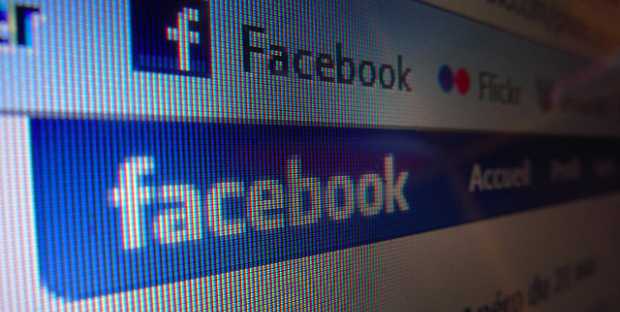Five (serious) symptoms of Facebook addiction

Hi, I'm Zack, and I'm a Facebook addict.
Addiction is partly in the mind, and we can all be gripped by something that throttles everything else in our life. From social media to hardcore broadband connections; even knitting. Well, maybe not knitting as the core Generation Y activity of choice, but you can see where I'm going with this.

My relationship with Facebook is on a rocky edge at the moment. Though I accept I spend a great amount of time on the mobile application and site as so many of us do, I have taken a break for my own sense of sanity.
While I argue that Facebook has become so intrinsic to our social relationships, we have yet to develop the filtering skills to take away the emotionless, draining energies from the site that we do not get in real life. Facing social exclusion, the need to detach myself from the overly sensitive minutiae that comes with over-use, it's important to highlight the genuine symptoms of Facebook addiction.
1. You become paranoid: "Why hasn't this person messaged me back?"
A common symptom, it seems, paranoia can grip anyone from a small amount to a dangerous level.The problem is that Facebook only tells you a little amount, rather than everything. Idle times are displayed with a sleep icon, but Facebook mobile users are always 'online', but may not have their phone with them. Though Facebook has chat presence, it does not guarantee that the person will respond, let alone see the message in the first place.
Also, what is the maximum time to respond to someone? Sites like Facebook do not take into account individual patterns of usage, and all but expects others to be online all the time too.
For those waiting for a response, the temptation is to call or to text, or to follow up with another Wall post or message. "Why haven't they responded?"; logical processes go out the window and paranoia sets in, questioning why they haven't replied. Who hasn't been there?
2. You spend more than an hour or five on the site.
Excessive use of anything is all-relative. I, personally, have a massive oxygen addiction. I love to breathe, and have no plans to kick the habit just yet.But spending more than an hour or two on Facebook per day is probably too much, for an ordinary 'consumer' user. Granted, many use Facebook for work or in some corporate setting, but most should not spend more than an hour on the social network.
Running through the day, we spend about half an hour in the bathroom per day, excluding showering and whatnot. We take an hour for lunch. We often spend an hour or so travelling to and from work or campus. Relatively speaking, if you are spending more time on Facebook than you do "on the john" -- or using Facebook whilst you are on the toilet -- please seek help.
3. A confusion of the divergence of real life and Facebook
There have been times -- no doubt you will have to -- where you have seen something posted on Facebook as a status update, and later on it has been rekindled as an actual memory.It's not uncommon, as often statuses are updated of what people are doing, thinking or going to do. But to actively forget when something has not happened in person but 'remembered' through a passing update, is somewhat worrying.
It's indicative that you've spent a great deal of time on the site too, which again goes as a strike against the addiction from the second point.
4. Excessive friend building and Wall posts
Sometimes people find that Facebook is an ego-related thing, and the need to build up an online 'portfolio' is a social need, in order to fully represent whom they want to be in real life.To add a constant stream of statuses and photos, videos and application updates may be one way of filling up time -- time that could be better spent elsewhere.
It can be an addiction in itself; the need to constantly update people on what you are doing, where and why you are doing it; something that could be construed as 'showing off' or boasting.
5. Depression sets in during downtime, and other withdrawal symptoms
Often, addictions are formed around a lacking something. It would not be amiss to suggest that those who spend a lot of time on Facebook do so because of a lack of other engagements.When that void is not filled but the addictive matter is taken away, withdrawal symptoms set in -- such as anger, anxiety, depression and other similar feelings. It's not quite as though you have been deprived from coffee all day, but does share some similarities.
When depression or other hidden, mind-orientated symptoms set in, such as frustration or as though you are missing out on something, then this again should be a cause for concern. Breaking up with an addiction is incredibly hard to do, but to do it in stages makes the arduous task easier.
Related content:
- One week on: Giving up Facebook is like giving up smoking
- Report: Teenagers 'addicted' to smartphones; Parents almost as bad
- Student blocked access to finish degree: Addicted to Facebook?
- Study: Checking social media addiction on par with smoking, drinking
- Do universities 'impose' tech addictions on students?